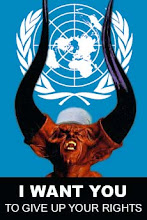
| SHORTLY after 9/11, strange stories began circulating about the lucky few who had escaped the outrage. It transpired that many of the survivors had changed their plans at the last minute after vague feelings of unease. It was a subtle, gnawing feeling that 'something' was not right. Nobody vocalised it but shortly before the attacks, people started altering their plans out of an unspoken instinct. One woman suffered crippling stomach pain while queuing for one of the ill-fated planes which flew into the World Trade Center. She made her way to the lavatory only to recover spontaneously. She missed her flight but survived the day. Amid the collective outpouring of grief and horror it was easy to overlook such stories or write them off as coincidences. But in fact, these kind of stories point to an interesting and deeper truth for those willing to look. If, for example, fewer people decided to fly on aircraft that subsequently crashed, then that would suggest a subconscious ability to divine the future. Well, strange as it seems, that's just what happens. THE aircraft which flew into the Twin Towers on 9/11 were unusually empty. All the hijacked planes were carrying only half the usual number of passengers. Perhaps one unusually empty plane could be explained away, but all four? And it wasn't just on 9/11 that people subconsciously seemed to avoid disaster. The scientist Ed Cox found that trains 'destined' to crash carried far fewer people than they did normally. Link Title | |

















No comments:
Post a Comment